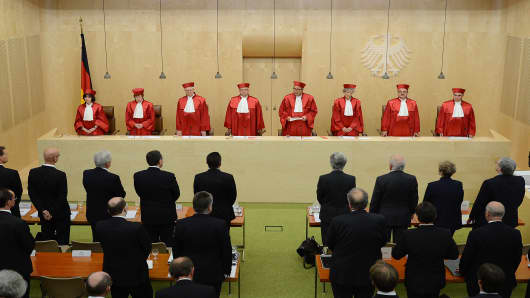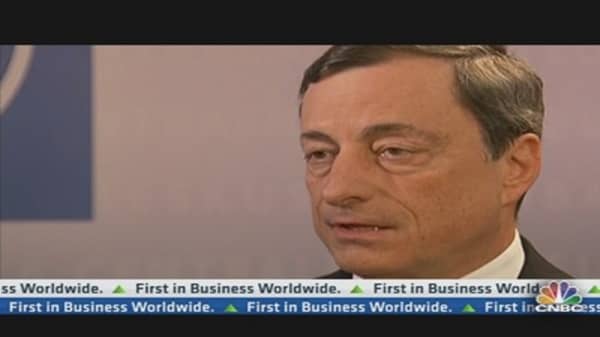Germany's constitutional court began its hearing over the legality of the European Central Bank's bond buying program on Tuesday and the head of the court said the success of the program wouldn't be relevant.
Professor Andreas Vosskuhle, president of German federal constitutional court based in Karlsruhe said before the hearing began that the success of ECB measures were not relevant to the case. "Otherwise, the end would justify the means."
Speaking in court, the German Finance Minister Wolfgang Schaeuble said that the German government sees "no signs that measures taken by the ECB so far violate its mandate." Schaeuble said he did not think the ECB's policy was subject to German or national jurisdiction.
Strategists told CNBC that the hearing on the Outright Monetary Transactions (OMT) could reflect a deeper power struggle between Germany and the euro zone.
(Read More: Will Germany's Top Court Disarm ECB's 'Big Bazooka'?)
Peter Frank, global head of G10FX at BBVA said the court hearing was really about a post-crisis power struggle with the rest of the "European community."
"We have the OMT program now which has really been a screaming success if you look at where bond yields are now relative to a year ago, so stability has been returned to the markets. But Germany now wants some conditionality on that OMT – possibly a cap on how much it could be, but it wants some safeguards," Frank told CNBC Europe's "Squawk Box."
Indeed, the court hearing on Tuesday has only come about after the court received several complaints from a number of German lawyers, citizens, and even the country's own central bank, the Bundesbank, that the ECB was over-stepping its mandate.
A court decision is not expected before Germany's national elections in September, but the bond-buying program is already a hot-button political issue because it could expose German taxpayers to further losses.





